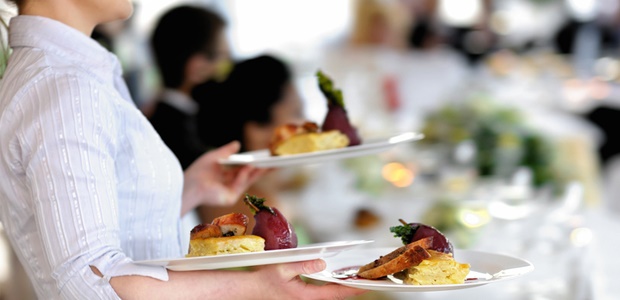In a recent Guardian investigative piece, former MasterChef UK judge, Michel Roux Jr, admitted that the 13% ‘service charge’ that was added to the bill at his 2 Michelin star restaurant, La Gavroche, did not go to the staff.
He revealed that it was treated as ‘revenue’ for the restaurant, which made £250,000 (R4,375m) profit last year. Ironically, that not insubstantial profit would have been after Roux, whose net worth is estimated at nearly £3m, had taken a significant salary for himself.
ALSO READ: Tipping does not pay waiters’ wages
But the revelations are even more shocking as La Gavroche was, only a few weeks earlier, also outed for paying some of its staff below minimum wage. That means some staff at a 2 Michelin-star restaurant, which charges up to £60 (R1,050) for a starter and £240 (R4,200) for the set menu, were earning less than the staff at McDonalds.
Michel Roux Jr has apologised and promised to not only increase the salaries of those that have been paid below minimum wage, but to also back pay all current and previous staff that were underpaid. With respect to the service charge, he has decided that rather than pass the 13% onto the staff, he will just add it into the price of the food and not itemise it as a separate charge.
Low pay is not uncommon in the hospitality industry
These shocking revelations have stirred up much debate in Britain, even the government is threatening to take action and make an example of La Gavroche. Interestingly, many people that work in the service industry have commented that such low pay is not uncommon in the industry, mainly in the form of unpaid overtime.
This unfortunate situation is not only a reality in the UK but across Europe and the world, South Africa included. With the minimum wage in South Africa being substantially below the living wage, service staff rely heavily on tips to supplement their meagre salary. Yet South Africans are notorious for being bad tippers, causing restaurants to include a compulsory service charge for larger tables.
ALSO READ: 5 Bad waiter habits
Living on tips isn’t enough
Why should servers rely on tips? Why not increase the price of the food and drinks by 15% and use that money to increase the salaries of all the staff to a decent level? That way the staff know how much they are going to earn and are not subject to the generosity (or lack thereof) of the restaurant patrons.
Some restaurants in Britain have converted to this model. One of the primary reasons is that they are struggling to retain good staff in the kitchen. Front of house staff can earn well if patrons tip generously, but cooks and chefs that have qualifications in their field are underpaid and overworked. By including the ‘service charge’ into the cost of the menu items, the restaurant can ensure all staff are paid a fair wage.
This system has not been without its challenges, particularly with regard to menu prices. When patrons compare the menu prices at these restaurants they often don’t consider that the service charge is already included and are therefore unhappy with the prices. The restaurant industry is very competitive and restaurant patrons are known for being very price sensitive.
Which raises the question, does the fault for service industry workers being underpaid ultimately lie with us, the diners? On the one hand, we are shocked at how badly kitchen staff are remunerated for hard work and devilish hours, but on the other hand we are always complaining about the price of food in restaurants. With the price of ingredients and rents increasing at a rapid rate, how do we expect restaurants to survive and pay their staff properly without menu prices increasing? It’s very difficult for the average restaurant to make a decent profit. Most of those that do well are chains which can negotiate better input costs through central buying. For the rest, it’s a constant battle to manage fluctuating input costs and rising fixed costs without alienating its customer base by increasing menu prices.
Local restaurateurs and chefs are complaining that it is becoming more and more difficult to find and retain decent, competent kitchen staff. Nobody wants to work that hard, for long hours, for that little money. What will the result of this be? The only solution is to increase the salaries of kitchen staff and if restaurants are to survive, they will need to put up their menu prices.
The standard of restaurants in South Africa has risen over the past few years and we are lucky to have a selection of great restaurants which serve superb food at very reasonable prices. Even taking into account the exchange rates and average salaries, we pay a lot less to eat and drink at good restaurants than we would in most other countries.
Where to from here?
It seems unlikely that the model of low base salary plus tips will change any time soon, especially here in South Africa. But if we want to continue to have the option of great restaurants serving amazing food, we’ll need to get used to the idea that prices will increase. And we’ll need to tip generously!

